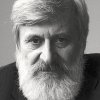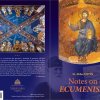George Gregory Glamack (June 7, 1919 – March 10, 1987) (born in Johnstown, Pennsylvania) was an American basketball player of Serbian origin, from Lika. A 6'6" forward-center, Glamack attended the University of North Carolina at Chapel Hill. Glamack, an All-American in 1940 and 1941, was nicknamed the Blind Bomber because he was an inspiration to those fond of individuals overcoming adversity. The Spaulding Guide noted that "Glamack, who is ambididextrous when on the court, is also so nearsighted that the ball is merely a dim object, but apparently he never looked where he was shooting, depending upon his sense of distance and direction." The secret of "The Blind Bomber" was looking at the black lines on the court. By doing that he knew where he was in reference to the basket and measure the shot.
.
He scored 45 points against Clemson in 1941, still the fourth-highest total in UNC history. That year, he led UNC to a Southern Conference championship and the NCAA tournament. In both 1940 and 1941 he won the Helms Foundation Player of the Year which was the only MVP award of that time. He is one of eight players to have his jersey number retired by UNC, the others being Jack Cobb, Lennie Rosenbluth, Phil Ford, James Worthy, Michael Jordan, Antawn Jamison, and Tyler Hansbrough.
Glamack had a modest professional career in which he was one of the keys who led the Rochester Royals to a pair of National Basketball League championships.
From Wikipedia





